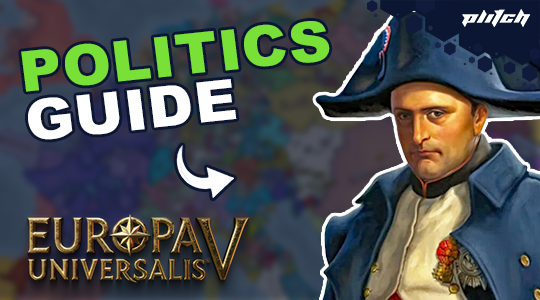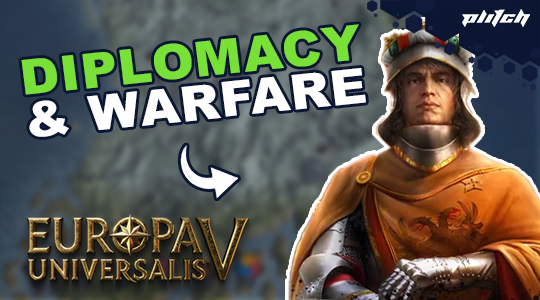Ready to chart the unknown? In our Europa Universalis 5 exploration and colonization guide, you’ll learn how to expand your empire across oceans, establish thriving colonies, and beat rival nations. Prepare your fleets, gather your settlers, and make your mark in the Age of Discovery.
Table of Contents
Europa Universalis 5 Exploration Tips
Exploration in Europa Universalis 5 isn’t just about revealing the map but also about taking risks for big rewards. Every voyage combines preparation, ambition, and luck. Your success relies on technology, naval strength, and strong leadership.
The first thing you should check is your colonial range. This value determines how far you can explore and settle new lands. It starts at 1000, but you can increase it through specific advances or by embracing the New World institution. Nations like Portugal have special boosts, but with the right progress, any country can become a global explorer.
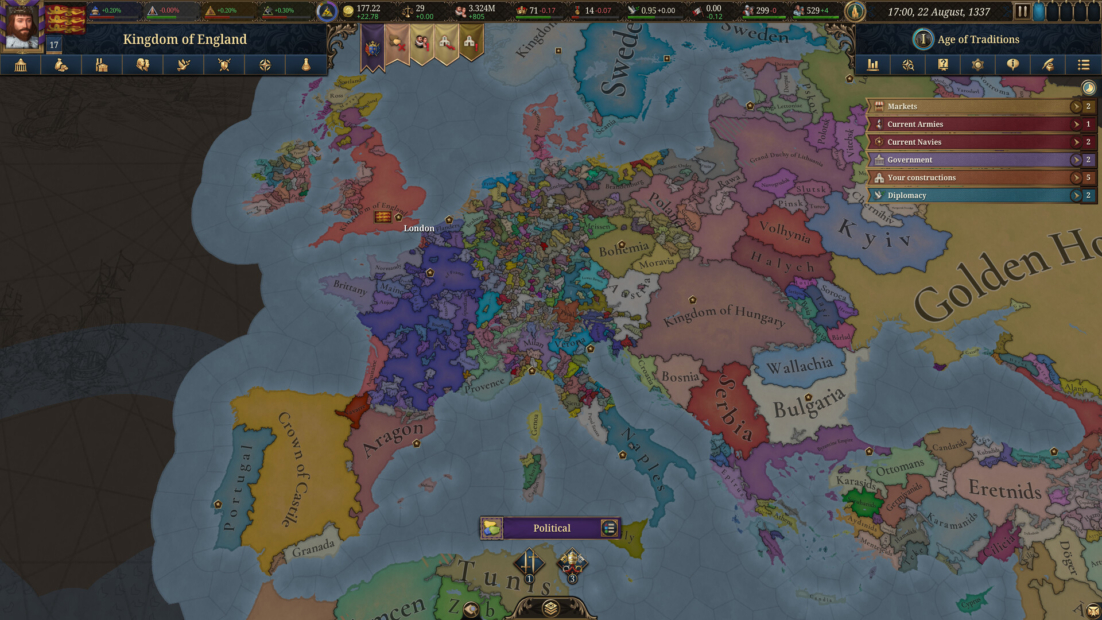
To start exploring in Europa Universalis 5, open the Geopolitics tab. Here, you’ll find all information about your current and upcoming expeditions. Choose a launch port, pick your target region, and assign a character to lead the mission. Some historical figures, like Columbus or Magellan, might even appear through events.
Each exploration requires ducats and sailors (or manpower for land expeditions). You also need to equip your fleet with resources such as lumber, naval supplies, and liquor. If you run out, the entire preparation stops, so ensure your markets are stocked.
The length of each trip depends on two factors:
- Distance from your ports and the naval range of your ships
- Terrain type, including open sea, coastal waters, or inland areas
Your exploration progress starts slow but speeds up as you make new advances, reforms, and improve your explorer’s skills. During the Age of Discovery, you’ll even receive a flat progress bonus.
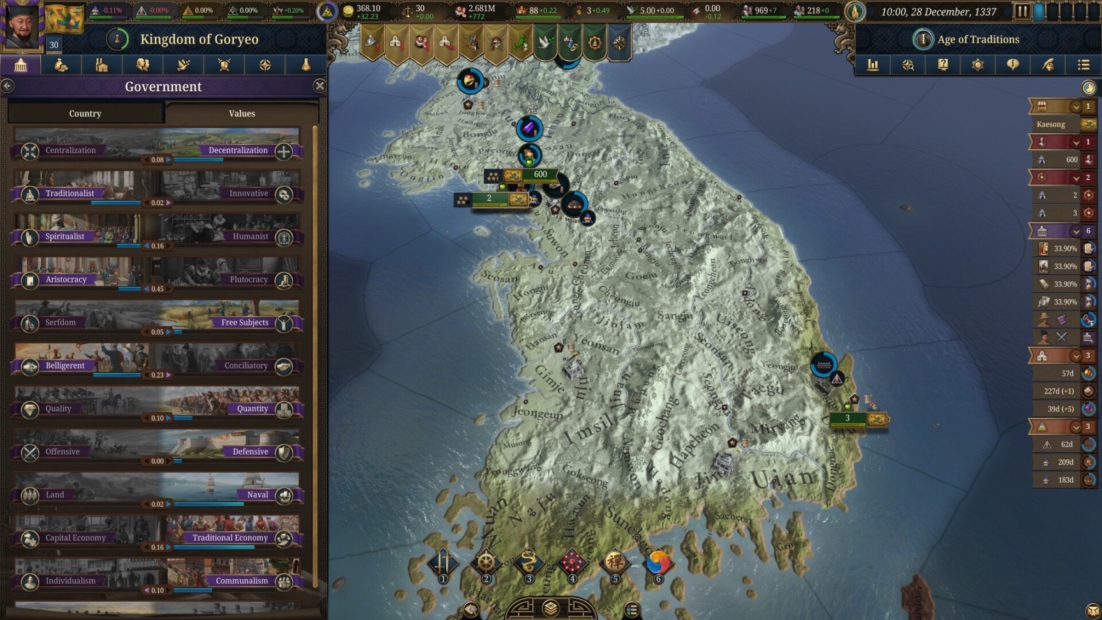
But don’t get too comfortable. Random events can make or break your mission. Calm winds, diseases, or even a dead explorer can turn your perfect plan into a disaster. Success or failure also influences your nation’s mindset back home. Ambitious voyages might spark curiosity and pride, while failed ones could trigger fear or resistance toward exploration.
Unlike EU4, you won’t see new lands until your expedition safely returns home. Only then will you unlock new territories to explore or colonize. This system makes every voyage a genuine investment where smart timing and proper preparation are more important than blind luck.
Europa Universalis 5 Colonization Guide
Once you’ve discovered new lands in Europa Universalis 5, the next step is to turn that discovery into dominance. Colonization isn’t a quick conquest for territory but a long-term investment that costs you gold, manpower, and patience, yet pays off with power and profit for centuries to come.
To establish a colony, you’ll need a colonial charter. These are managed in the Colonization tab on the Geopolitics page. Each charter costs ducats to start and has a monthly upkeep that increases with each active colony. The closer the target land and the more provinces you already own nearby, the cheaper it becomes.
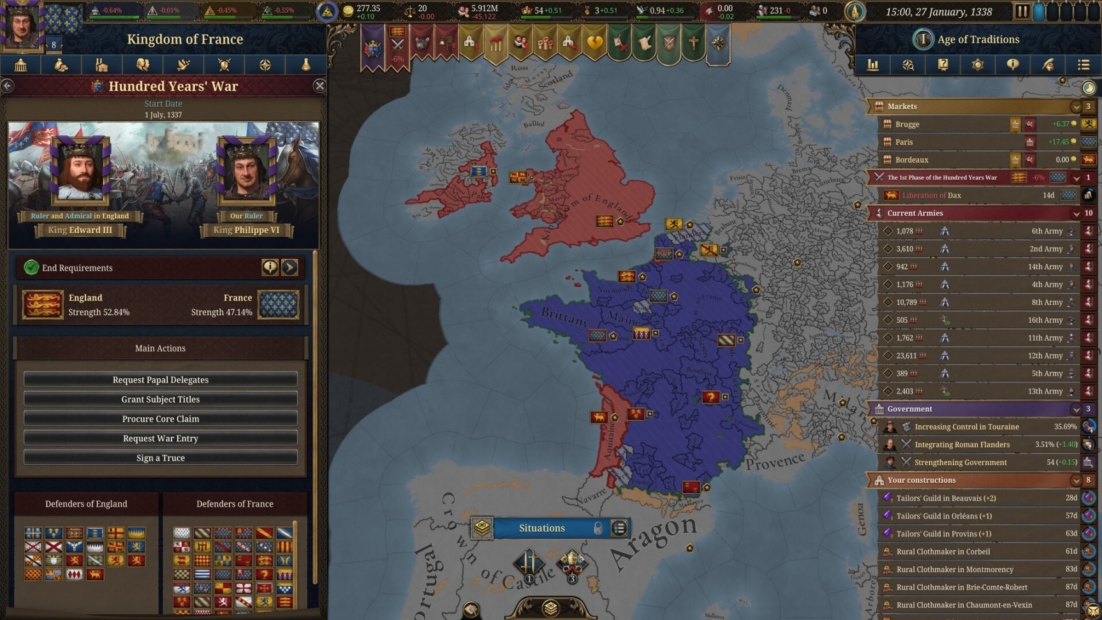
Your settlers originate from one of your own provinces with at least 1,000 people sharing your nation’s primary religion and accepted culture. The farther they travel, the longer the migration takes and the more it tests your nation’s resolve.
Colonies also depend on your economy in Europa Universalis 5. They constantly need cloth, salt, medicines, weaponry, and tools from your markets. If these goods run low, the colony will struggle to survive. Once it reaches a total population of 1,000 and half of the inhabitants follow your religion and culture, it’s considered fully settled. From there, you can choose to:
- Integrate it directly into your empire
- Create a new colonial subject to manage it semi-independently
- Merge it with an existing colony
Every colony has its own story. Regions with high native populations, harsh climates, or diseases like malaria will slow your progress. But you can boost growth by improving Colonial Migration, which controls how many pops leave home to start new lives abroad. Advances in technology, government reforms, and your Maritime Presence increase this value, while distance or an inward-looking society will decrease it.
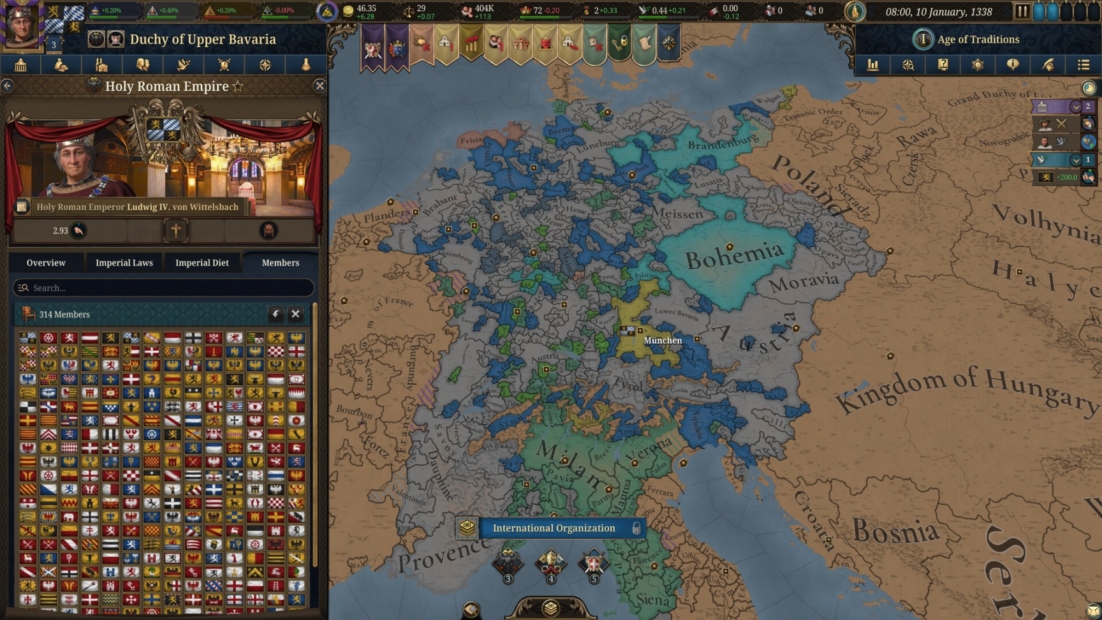
Not all colonies are the same. Each area offers a specific resource, like furs, sugar, or gold. Choosing the right spot early can determine your empire’s economic success. Think of it as the difference between a quiet fishing town and a wealthy, gold-rich region like Brazil.
Competition is intense. Several nations can target the same province, and the one that sends the most settlers first wins the race. However, pops from the losing nations don’t disappear. They stay and become part of the new colony, often forming multi-ethnic settlements with unique traits and challenges.
During the Age of Discovery, this rivalry could escalate into historic-scale drama. Competing Catholic nations might call on the Pope to divide the world, leading to influential treaties like the Treaty of Tordesillas, or perhaps even your own Treaty of Havana or Treaty of Lisboa, depending on who’s involved.
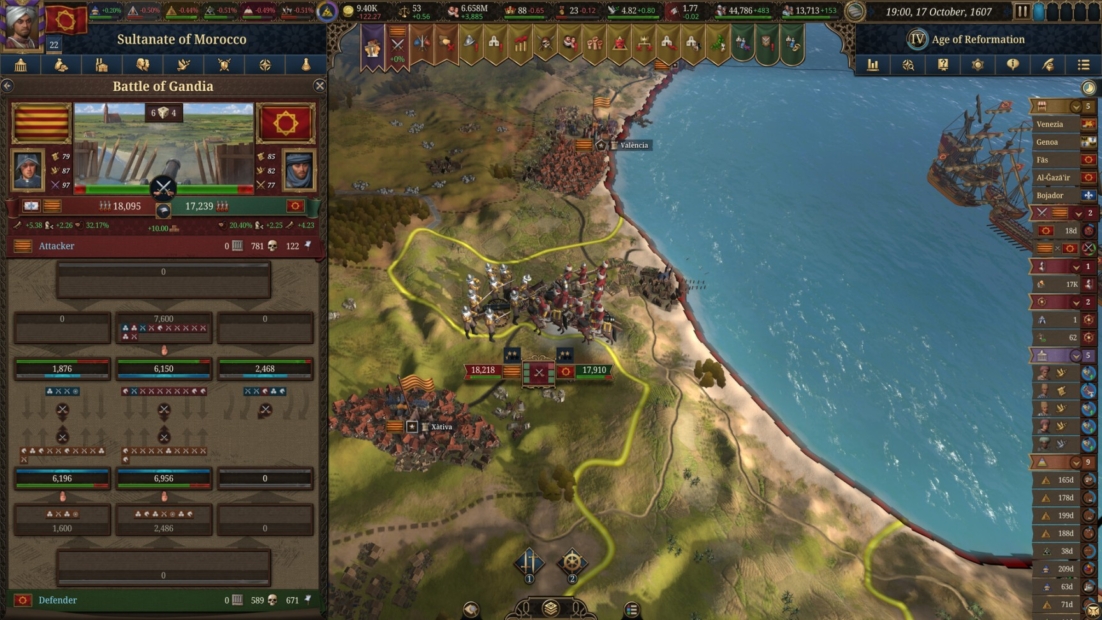
Once a colony is fully established, you gain complete control, but what happens afterward is up to you:
- Maintain direct control for maximum profit (but with more micromanagement)
- Establish a colonial subject, allowing it to develop independently and support your wars
- Play as the new colony, forging an entirely new destiny
Your colonial subjects aren’t passive. They’ll pay you a share of income, send manpower and sailors, and share trade benefits as long as they stay loyal. Push them too hard, though, and you might find your once-loyal colony waving its own flag of independence.
Conquer the World Faster with PLITCH!
Exploring the unknown and building colonies in Europa Universalis 5 can take a long time unless you control the pace yourself. With PLITCH‘s Europa Universalis 5 trainer, you can customize your campaign and ensure your empire continues to thrive even when the odds are against you.
For exploration, Add Gold is your best ally. Expeditions cost ducats, sailors, and time, and this code guarantees your treasury never empties. Combine it with Set Sailors to keep your fleets ready for every voyage without waiting months to restore manpower.
When managing multiple colonies, Set Manpower and Set Stability help you keep up with increasing unrest and expansion fatigue. A high stability score keeps your people happy and your colonial efforts efficient.
To keep things running smoothly, Set War Exhaustion and Set Prestige are essential tools. Disasters during exploration, expensive wars, and long-term colonization can quickly damage your nation’s prestige. Still, with PLITCH, you can sustain your image as the most glorious empire on the map.
And if diplomacy isn’t working in your favor, use Set Diplomats and Easy Diplomacy to secure alliances and colonial agreements more quickly than any rival nation.
Head over to our Europa Universalis 5 Trainer Showcase on our YouTube channel to see our codes in action!
Happy Gaming!
Check out our other guides for the game:

